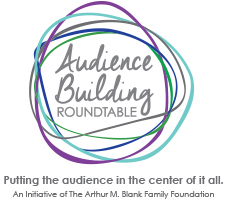By Caroline Huftalen
Former Marketing Director, 7 Stages
7 Stages began releasing production trailers during the 2015-2016 season. The first trailer we produced was for Lauren Gunderson’s The Revolutionists. It was a production that already had a following due to the playwright’s local and national name recognition, as well as the current staging at Cincinnati Playhouse gaining rave reviews.
But our question was: How do we, as an organization, set ourselves apart from that production as well as get those interested in the play who may not know who Lauren Gunderson is? We had a miniscule budget and happened upon a videographer (after putting out a major last minute fire. Oh theatre!) who got our vision and had the skill set and creative eye to take that vision and turn it into a huge social media success which translated into box office success.

Stats
Before we began putting a big focus on produced video content, we would usually get around 300 views on average for a promotional video. These promotional videos were not artful or artistically thought out. They were shots of staged scenes from the actual productions and usually not the best quality footage. When we decided to move toward a trailer model for our videos and put effort into the production of them, we saw the pay off immediately. For the trailer for The Revolutionists, the first for our new strategy, we had over 2,000 views and 27 reactions. We launched it organically at first and then did a target promotion of $10.00. The more video we did, the more views we received and we began not only reaching ticket sales goals but surpassing them. The trailer for Inside I, the production that followed The Revolutionists and ended our 2015-16 season, received close to 4,000 views. We opened our next season with The Threepenny Opera. The trailer for that production received nearly 6,000 views. All videos were boosted for under $25.00.
Testing
We released trailers for each production starting with The Revolutionists and Inside I towards the end of 2015-2016 season and continued through to the 2016-2017 season with trailers for The Threepenny Opera, Krampus, and White Woman in Progress. We took the data from those trailers to see how long people were watching, who was watching, and organic versus paid reach. Along with the analytics, we tested when to be releasing these videos. For some productions, the video release was the first step in the launch of sales, or it was timed with a promotion, or we would release the video organically, see the results and when a review came in we would release the video with a minimal boosted amount alongside the new quotes raving about the production.

Results
What we found was that the audience demographics changed by production, which was expected. What we didn’t consider was that viewers wouldn’t watch to the end. We had a hard cut off of 90 seconds or less for the trailers knowing that attention spans, especially on the internet, are incredibly low. We found that our audiences on average were watching for 10 seconds or less. Which for us was detrimental since we put all of the show/sales information at the end of the video and not the beginning. Also, for each video we did, there was an unplanned slow build to the climax of the video which was generally close to the end.
Where to now?
After seeing the time limits of viewership, it took us back to drawing board. For starters, we needed to structure the videos differently, making sure that exciting or important content was at the beginning. We needed to get rid of any drawn out intros and start in the action. Information about the production was included in the post itself on social media, but we needed to make sure that information such as title, our logo, dates, and website were all featured in the beginning and not just at the end. It also made us look at the length of each trailer. If audiences are only watching for 10 seconds then why are the videos 90 seconds? Should we condense content down to 15 seconds or less? Or release a series of trailers where the content is broken into shorter chunks of time? These are all questions that we intend to test in the coming months.
We anticipate continued experimentation and testing so that we can get the timing exactly right.
Keywords: video, social media, production trailers, data anlaytics, using data, social media metrics
